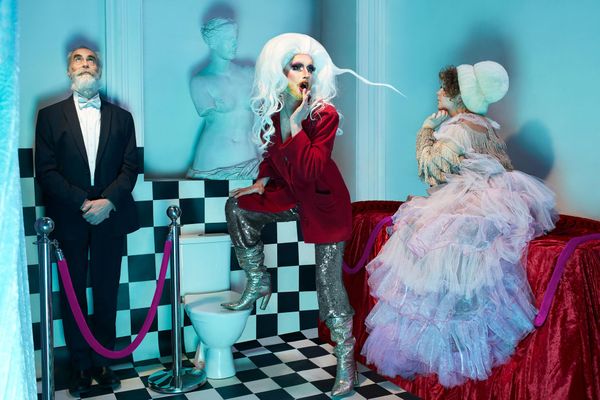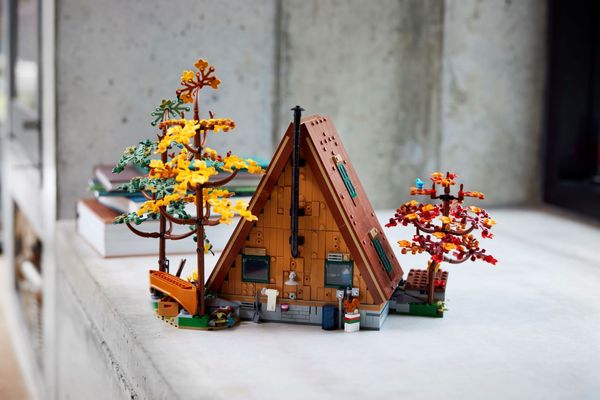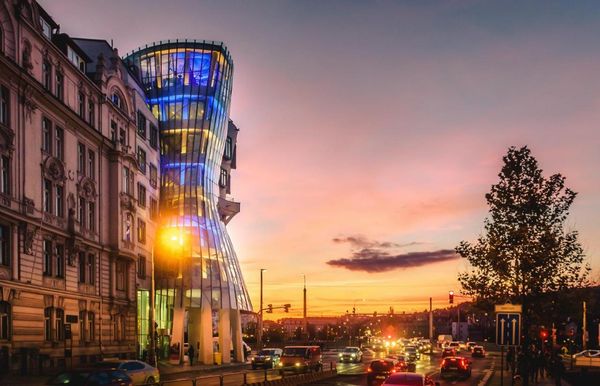Some people are ready to accept a little guidance from life, while others take a more intricate path to their destiny. But when we are in our place, everything suddenly takes shape—sometimes out of clay. Discover the story of Eszter Gyalog and András Lukács (Luki), founders of the Marēk ceramics workshop.
Not too long ago, yet almost in another world, in late 2017, two young economists were planning their wedding. Both were employed by a multinational company, working day in and day out in a repetitive, reliable framework, staring at a screen in a comfortable office—the way so many people start their careers. The big date was set for September 2018, and as they both shared a passion for creativity, they thought they would give a personal, handmade item as a welcome gift at the ceremony.


“We don’t know when the clay first came into the picture. We just know that we found a pottery studio in the Wekerle estate (a suburb of Budapest—the Transl.) where we lived and signed up for a course.”
Eszter and Luki took up pottery after work and told the workshop leader about their plan right from the start, who supported them but also pointed out that they were perhaps taking on a bit too much by making 100 small plates in a few weeks as non-professionals. After all, making pottery isn’t easy, it doesn’t happen overnight, both the technique and the material need time to take shape. At the end of the course, they didn’t finish the 100 small plates, but they fell in love with this art so much that they bought an old kick wheel from a second-hand portal.



“We tapped into something we didn’t really understand at first. But we enjoyed it and it became a hobby, so in the evenings after work, we would go to the shed and throw pots.”
At the time, it was all quite rudimentary: the wheel was set up at the end of the garden in a shed with nothing more than a roof, which even the slightest storm would soak through, often damaging the pottery and not exactly providing comfortable working conditions. In addition, a cycling accident meant that Luki had to undergo shoulder surgery before the wedding, so he had one less hand to work with, but they finally finished the plates for the wedding. Despite the challenges, they didn’t tire of the craft, so when they moved to another house in the neighborhood, they looked for a place with room for a small workshop.

“We realized that this is what we wanted. We wanted it to be more than just a hobby.”
The new apartment included a small room that was suitable for a studio, but it had to be stripped down almost to the walls. Whenever they could, after work and sometimes even during the day, they went out into the garden to pour concrete, paint, or do whatever was needed. As always, the final push came by chance (or fate).
“There was a big storm one evening. The door of the neighbour’s shed was blown open by the wind and as he wasn’t at home, I went out to close it. As I peered inside, I saw a big kiln and a potters wheel standing there.”



It turned out that the tools belonged to a relative who had moved to America a long time ago, and the new owner didn’t need them, so they ended up getting them. By early 2020, the Marēk workshop was complete, with an Instagram page and a webshop, but in the meantime, Covid came along. Ironically, this helped them, as it made it easier to sneak out during idle hours, to continue prepping the studio or throwing some clay. Meanwhile, Eszter became pregnant, so they started spending even more time together.
“Laptop off, work clothes on, and off to the studio. It was a kind of second shift that we really looked forward to.”
But making it work on a business level was far from easy. Ceramics is one of the most expensive practices in the design field, you can’t save on tools or materials, and it’s also quite time-consuming. Its inherent value has already been discovered by many, especially as handmade objects, including ceramics, have grown in popularity during the pandemic. For them, the first major milestone on the road to success came when Nosalty asked them to collaborate on a project, which involved creating 30 plates with unique inscriptions on them. Only upon delivering the items did they realize that they had been gifted to 30 of the most important gastro-influencers as a token of appreciation—and the public figures, some with followers in the tens of thousands, could introduce the brand to a huge number of people in a single post or story.


And it’s easy to fall in love with their objects (just as I did) because they create beautiful things with a unique style: each piece is different, fits in the palm of your hand, is delicate yet strong, and the colors evoke misty dawns and the elusive northern lights or the Milky Way.
“Everything pointed in the right direction. We reached a point where we were full-time economists, ceramicists, and parents of a baby girl—and we know this had to change. We knew which role it was time to say goodbye to.”
Fortune continued to be on their side. There were rough patches and easier periods as well, but they always got the support and attention they needed. For instance, they have been fans of Művészetek Völgye (a cultural festival—the Transl.) for years, and in 2021 one of their customers introduced their work to the festival. The POKET pocketbook brand had its own space that year, where they were invited to organize workshops. They still think of the Vecsei family with gratitude, because thanks to them Marēk has been a regular participant at the festival ever since. In addition, several restaurants and bistros, such as TOKIO Budapest, Mad Dog, and A másik bolt, offer coffee, tea, and meals in their ceramics, and there are always new collaborations popping up.




Over time, they outgrew their home workshop and rented another space a little further away in the district of Kispest. Here they hold workshops and also make objects (cups, plates, vases, etc.) that they take to fairs like the one at Telep or to Makers Market. Meanwhile, they are upgrading and making plans: first, they have created a new, more comfortable, and professional prototype of the potter’s wheel, which they want to start manufacturing; and if all goes well, they will present their work in a small design shop in Buda, along with other brands, starting in the spring. As they say, “it’s been a bit of a miracle so far”, so why would it be any different after this?

Marēk | Web | Facebook | Instagram
Photos: Dániel Gaál

Like a constant performance | Introducing Shotby.us

Adorable cabins now available at LEGO










